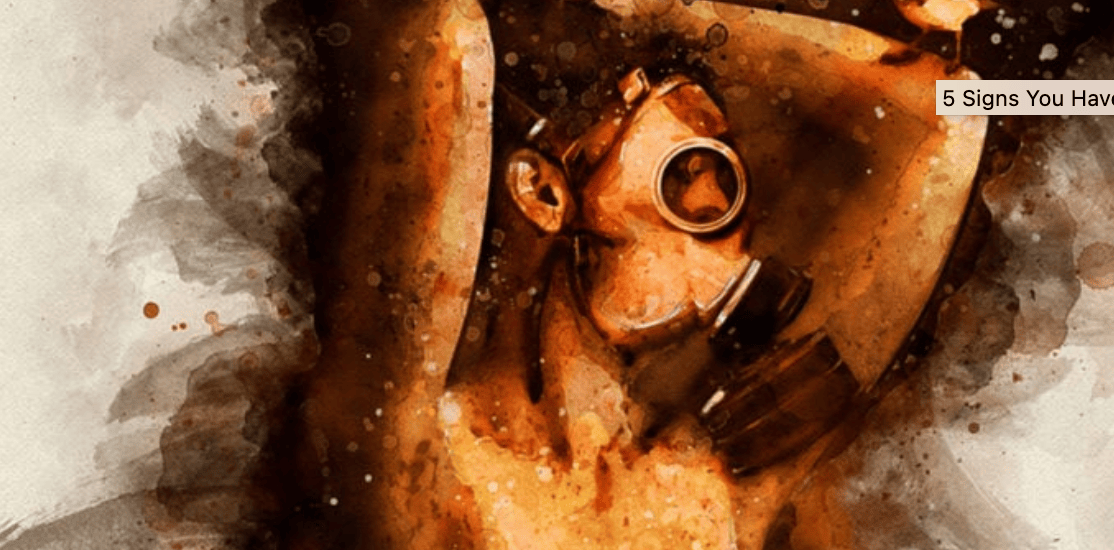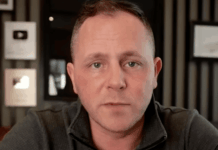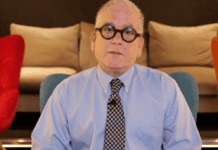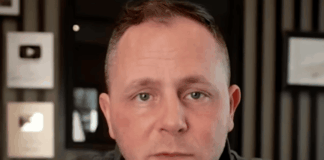“The worst loneliness is to not be comfortable with yourself.” ~ Mark Twain
Toxic, haven’t we all heard that word before. For anything to turn toxic requires negligence, ignoring repeated patterns or denying them altogether. Toxicity in life takes time to build, you may recieve repeated hints in the form of behavioral patterns that are ignored, and this is when it reaches a level where it becomes toxic.
When that toxicity creeps into one’s own relationship with oneself it becomes a cause for concern. Self care is important to stay sane and at peace with oneself, it’s the words we speak to ourselves that becomes a part of who we are.
We are so busy taking care of others at times or even our daily tasks that somewhere we put our own needs on the backburner.
How do we know whether the relationship with ourselves is turning toxic?
Here are 5 Signs You Have A Toxic Relationship With Yourself
You are hard on yourself
Every time you make a mistake or things something goes wrong, you blame yourself. “It is because of me that I didn’t get through the interview, or this relationship didn’t work. I am not good enough.”
The negative self-talk, criticising yourself all the time makes it difficult to move forward on a path of self-realisation. Accepting responsibility is one thing but wallowing in it is harmful and toxic. This behavioral pattern is often the result of our childhood, when some of our emotional needs were not met.
Imagine a child crying or upset because they a made mistake, what words of comfort will you have to offer? You will probably say, “Don’t worry, we all make mistakes, we learn from them,”
Similarly, when you make mistakes, you have to use the same tone, the same words to soothe that inner child who has always been ignored and neglected, to understand him and acknowledge his presence.
Instead of being stuck in a negative self-talk loop, dive deep down and see where this negativity stems from. Do the inner child work. Learn to forgive yourself. Embrace your imperfections. It is okay to go wrong and to falter, learn from your mistakes and focus on improving yourself rather than wallowing in it.
You find it difficult to say ‘NO’
““The oldest, shortest words— “yes” and “no”— are those which require the most thought.” ~ Pythagoras
“Can you do this for me please,” and your response is “Yes,” even if deep down you know it will take more time to finish that particular task.
You say yes either out of fear of jeopardizing your relationship, or you are worried about the impact it might have on your future prospects, or what will other people think, whatever the reason may be, learning to say no is setting healthy boundaries.
Society operates on this belief that in order to progress you have to please people, it’s like you scratch my back and I scratch yours, that itself works from a place of selfishness and egoism. Remove the veil, step out of this illusion, you are only fooling yourself. Recognise that saying no doesn’t make you self centered, it only means you are standing up for yourself.
You might genuinely want to help but not at the cost of your own mental and emotional peace. Take care of yourself. Learn to express your feelings or thoughts as you are only protecting your own sanity and your integrity.
You seek validation
“You will never gain anyone’s approval by begging for it. When you stand confident in your own worth, respect follows.” ~ Mandy Hale
The need to seek validation stems from your childhood where you might have been heavily criticised by your parents, teachers, family members etc., and that gave rise to feelings of not being good enough. As a result you seek validation from external sources, “have I done this right? Should I do it this way?” and so on.
You have lost the ability to trust yourself and make your own decisions.
When you feel the need to seek others’ approval, you are actually holding yourself back from doing tasks that you personally find meaningful. You feel out of alignment with your own values and beliefs, yet you ignore them. This toxicity can be extremely draining, because it is separating you from your true self.
You may like to read these are 5 reasons you should stop seeking other people’s approval
“Because one believes in oneself one doesn’t try to convince others. Because one is content with oneself one doesn’t need others approval. Because one accepts oneself the whole world accepts him or her.” ~ Lao Tzu
You have low self-esteem
Having low self esteem is when you are judging your worth, and feel – “I am not good enough,” and “I am not worth it.”
In most cases, low self esteem stems from your childhood when a loved one – either a parent, grandparent, teacher, aunt etc., said something that implied rejection or you interpreted it that way. This triggers feelings of low self-worth, being over critical of your actions, comparing yourself to others and having low self confidence.
You start looking for others to make you feel confident and boost your self esteem. You don’t realise that it is you who creates these feelings and you aren’t the victim of it. As a child you aren’t emotionally self responsible because you are still dependent on others, but as an adult you have a choice to update your belief system and not operate from that same debilitating mindset. When was the last time you updated your belief system?
Reparenting your inner child will help you heal those emotional wounds and help you let go of this toxic relationship you have with yourself.
You keep giving
As an old saying goes, “You can’t pour from an empty cup.” In life there are two very important gestures – giving and receiving – both are required to be able to maintain a healthy relationship.
“The universe operates through dynamic exchange . . . giving and receiving are different aspects of the flow of energy in the universe. And in our willingness to give that which we seek, we keep the abundance of the universe circulating in our lives.” ~ Deepak Chopra
A lot is based on the intention with which you give – Are you giving from a place of love? Or are you giving out of compulsion? Are you giving hoping you get something back? Or giving without expectation?
When the intention becomes clear in your mind, giving becomes energizing, it opens your heart and becomes a very liberating experience.
However, when you keep giving (not in terms of material gains) in a relationship, for example, and you feel drained, then it becomes unhealthy and toxic.
Either you have really high expectations that lead to disappointment or resentment or the other person doesn’t value the amount of time, for example, you invest in a relationship and take you for granted. Sometimes you give out of obligation or as a favour, then giving becomes a burden and nothing else.
Be wise, don’t pour from an empty cup, remember to replenish your energy.
“I have long struggled with self-love. I strive, each day, to be kinder to myself and to value my worth. And I know I’m not alone.” ~ Maya Angelou
In most cases, the above mentioned signs of toxic behaviour with yourself comes from childhood, the foundational years that sets the tone of our life. The past is gone, it’s up to us to not be defined by it. There is always a choice to update your childhood programming, like the software that needs regular upgrading, our beliefs too need to be upgraded and our inner child needs to be acknowledged and loved.
“How you love yourself is how you teach others to love you.” ~ Rupi Kaur
Self love is the key here. The moment you begin to spend time with yourself, love yourself, and nurture your relationship with yourself, you will notice things beginning to change – in terms of negative self-talk, your behaviour with yourself and the toxicity will soon fade away.
As David Lees puts it, “The words you use are the bricks you build your house with.” Choose wisely and hold space for yourself, because you deserve it!
From fractalenlightenment.com
Disclaimer: We at Prepare for Change (PFC) bring you information that is not offered by the mainstream news, and therefore may seem controversial. The opinions, views, statements, and/or information we present are not necessarily promoted, endorsed, espoused, or agreed to by Prepare for Change, its leadership Council, members, those who work with PFC, or those who read its content. However, they are hopefully provocative. Please use discernment! Use logical thinking, your own intuition and your own connection with Source, Spirit and Natural Laws to help you determine what is true and what is not. By sharing information and seeding dialogue, it is our goal to raise consciousness and awareness of higher truths to free us from enslavement of the matrix in this material realm.
 EN
EN FR
FR


























